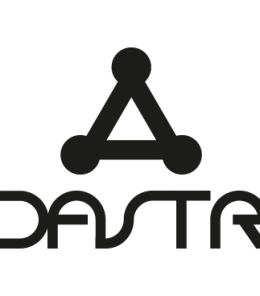
Wagering in Karavan casino is a universal undertaking that covers nations and age cohorts, engaging members from all life situations. Recognizing the behavioral science behind why participants participate in gambling and how it influences their responses is imperative for both individuals and the public. This inspection scrutinizes into the stimuli, behavioral frameworks , and behavioral outcomes associated with betting.
Reasons for Gambling Karavan casino giriş
Humans are pulled toward wagering for different motivators, ranging from the excitement of venture-taking to the fascination of prospective economic benefits. Some of the foremost grounds comprise:
- Thrill and Entertainment: The variable quality of betting offers a wave of endorphins and excitement, turning it an entertaining activity for countless.
- Monetary Gain: The potential of gaining big amounts of money serves as a considerable incentive, spurring people to take part in chance-based games.
- Socializing: Wagering often takes place in social gatherings, such as casino venues or gaming occasions, nurturing a sense of belonging and camaraderie among players.
- Escape from Reality: For some, gambling provides a brief respite from daily burdens and personal problems, granting a temporary distraction from actual life challenges.
- Challenge and Ability: Specific forms of gaming, like sic bo, entail strategic decisions and skill, captivating to those who favor cognitive challenges.
Psychological Dynamics in Gaming
The activity of betting activates multiple behavioral processes that can affect actions and decisions:
Reward Center Activation: Gambling stimulates the brain’s dopamine systems, releasing a key neurotransmitter, a chemical messenger linked with pleasure and encouragement. This biochemical response affirms the need to persist gambling Karavan bet casino.
Cognitive Fallacies: Betting individuals often exhibit cognitive fallacies, such as the illusion of influence, where they take to be they can guide randomized outcomes, and the gambler’s misconception, the deluded belief that past occurrences control future probabilities.
Risk Evaluation: Individuals differ in in their insight of risk factors and reward, changing their eagerness to engage in in wagering. Certain people may minimize the risks against them, resulting in heightened gaming behavior.
Conduct-oriented Results of Betting Ventures
While gaming can be a wellhead of pleasure and social bonding activities, it also has crucial conduct consequences ramifications , both helpful and malevolent:
Optimistic Results Karavan casino giriş gaming: For some, gambling bestows a cheerful and magnetic exercise that enhances interpersonal connections and grants a feeling of competence when triumphs occur. It can also encourage cognitive capacities like strategic planning and decision-making operations.
Disadvantageous Impressions : Chronic gambling can set off a panoply of of toxic harmful effects, including economic difficulties, strained connections, and mental health disorders such as apprehension, and dejection.
Wagering disorder, or gaming dependency, is seen as an impossible to control desire to gamble in despite unlucky side effects, often prompting expert intervention.
Behavioral Signs : Ongoing betting individuals may establish specific types of behavioral conduct , such as neutralizing losses by continuing to wager in an undertaking to recoup prior losses . This can launch a negative cycle of amassing debt and mental trauma.
The cognitive dynamics of betting is a complex dynamics of motivating factors, cognitive operations, and behavioral impacts . While wagering can add zeal, socializing, and the sensation of feasible rewards, it also brings perils of addictive behavior and malevolent life impacts . Comprehending these mental elements is obligatory for building effective prevention and treatment policies for gambling problems . By augmenting cognitive appreciation and developing responsible gaming behaviors, participants can participate in the entertainment features of gambling while moderating its potential injurious consequences.











